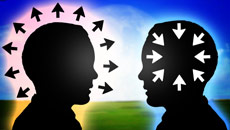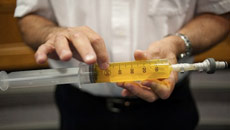What if we could diagnose cancer while it was still only affecting a few localised cells? Here comes an ultra-sensitive nano-chip that is capable of detecting cancer early.
The device is able to detect very low concentrations of protein cancer markers in blood, enabling diagnoses of the disease in its earliest stages.
“We are capable of detecting extremely low concentrations of this protein in a matter of minutes - making this device a state-of-the-art, powerful instrument that will benefit early detection and treatment monitoring of cancer,” explained professor Romain Quidant from Institute of Photonic Sciences in Castelldefels in Barcelona, Spain.
This chip hosts various sensing sites distributed across a network of fluidic micro-channels that enables it to conduct multiple analyses.
Gold nano-particles lie on the surface of the chip and are chemically programmed with an antibody receptor in a way that they are capable of specifically attracting the protein markers circulating in blood.
When a drop of blood is injected into the chip, it circulates through the micro-channels and if cancer markers are present in the blood, they will stick to the nano-particles located on the micro-channels as they pass by.
The device monitors these changes, the magnitude of which are directly related to the concentration/number of markers in the patient blood, thus providing a direct assessment of the risk for the patient to develop a cancer.
“This cancer-tracking nano-device shows great promise as a tool for future cancer treatments, not only because of its reliability, sensitivity and potential low cost, but also because of its easy carry-on portable properties,” Quidant added.





